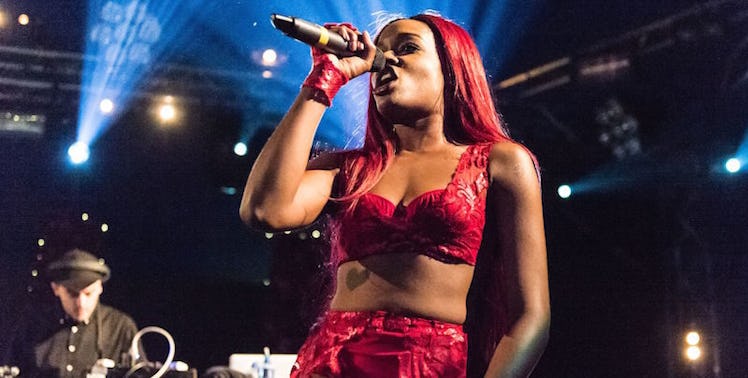
I'm Black, And This Is What I Think About Skin Bleaching
As a black woman, there are already so many lingering oppressions my community still has to face, even in the 21st century. The ways we act, talk and look are manipulated and depicted by harmful and limiting stereotypes.
When I heard of Azealia Banks bleaching her skin and defending her decision, it raised some questions for me:
1. Why?
As simple and bland as this may sound, there's a lot embedded in the "why."
Why have you let the criticisms we face every day shade you into something you are not? Why does black have to be a negative thing to the black woman herself? You own the skin you're in.
You don't have to air all of your reasonings to the public across the internet, but it would be ignorant to believe there isn't a deeper, darker reason for this “enlightenment.”
2. What are you saying?
I'm not just wondering about the words that are coming out of your mouth. What are you saying about the skin you are choosing to hide?
As a public figure, you have a large fanbase, and some of that fanbase includes young black girls who are coming to terms with the women they want to be. By bleaching your skin, you are expressing there is something inherently "flawed" with black skin. You are sending a message to these girls that they should be different.
Unfortunately, these days, the voices of their idols are louder than their own, and you are telling them to not love and appreciate themselves.
3. What does it change?
No matter how long your hair is, how light your skin is or how rich you are, you are still black. You will always be associated with black because black is black.
Lightening your skin to a more “appropriate” or “acceptable” shade does not change who you were at birth. A lighter complexion can't change the race you identify with, and it won't give you the perks of another race.
We aren't born perfect, and it's everyone's right to make adjustments to themselves to feel comfortable. Makeup can be taken off, hair can be grown or put on, but skin? That's a permanent change.
4. What does this prove?
Even celebrities who appear to have it all have incredible insecurities, and they can be pushed to take drastic measures to fix them. But, there are plenty of black celebrities comfortable in their skin and who believe their black skin is beautiful. There's Angela Bassett, Michelle Obama and Janelle Monae, just to name a few.
To have a black woman lighten her skin proves my community is still trying to come to grips with our identities and how we view ourselves.
5. We need to stop dissecting.
Black women haven't been two-thirds of a person for a long time, but instances like this itemize us yet again. Statements like, "We are pretty, except for this," or, "We would be better if we had this," continue to make us seem like we will never be enough.
Allowing only certain qualities of ourselves to be accepted also enables others to compartmentalize us. Skin is the largest organ in the human body, and lightening it is a way of erasing who we are and where we come from.
Lightening black skin only reinforces restrictive and damaging stereotypes about black people. Like I said before, our skin is a trademark of who we are and where we've been. And although the past we stem from is not pretty, we are.